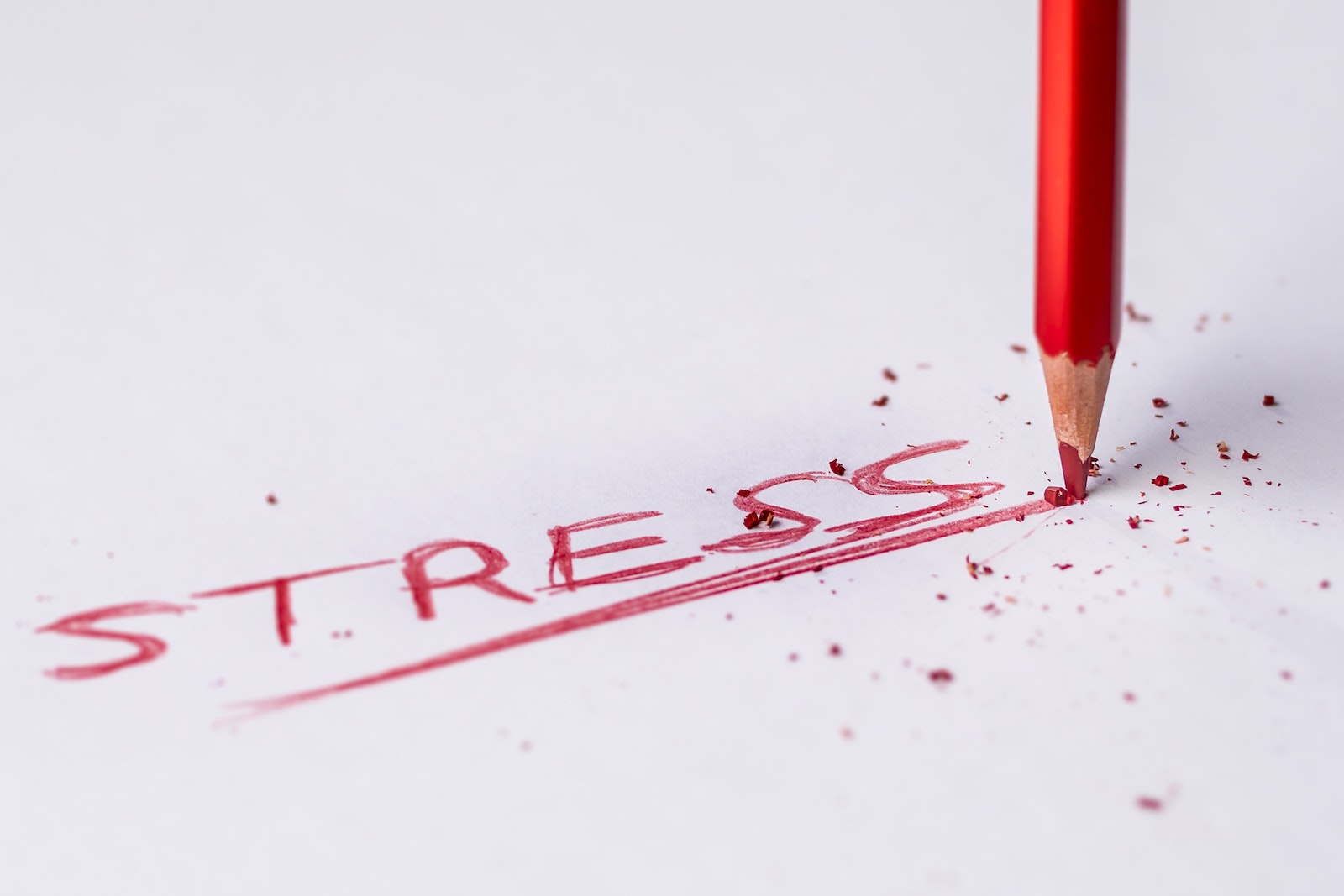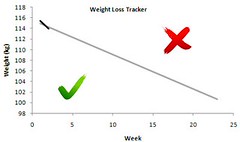The Impact of Stress on Weight Loss and How to Manage It
Are you struggling to lose weight even though you’re exercising and eating healthy? Stress could be the culprit behind your weight loss plateau. Research has shown that stress can have a significant impact on our bodies, including our ability to maintain a healthy weight. But don’t worry – there are ways to manage stress and still shed those unwanted pounds.
In this blog post, we’ll explore how stress affects weight loss and share effective strategies for managing it so you can reach your goals sooner rather than later. So grab a cup of tea, sit back, and get ready to learn about the surprising link between stress and weight loss!
What is Stress?

Stress has been linked to an increased risk for obesity, heart disease, and other health conditions. The Mayo Clinic defines stress as “a mental or emotional state in which a person experiences tensions, worries, and fears.”
Understanding how stress impacts weight loss can help you manage your body’s response to stress. The American Psychological Association states that when people are stressed, they tend to eat more food and snack excessively in order to cope with the heightened feelings of anxiety and tension. This cycle of overeating leads to weight gain.
Here are some tips for managing stress while trying to lose weight:
Be proactive about managing your stress. Make time each day for relaxation techniques, such as yoga or meditation. Dr. Phil recommends writing down your thoughts and feelings so you can review them later without feeling overwhelmed.
Set aside time each week to reflect on your progress and set new goals. Don’t neglect your physical well-being. Exercise regularly and make sure the exercise you do is Moderate intensity (not too hard nor too easy). Be realistic about your expectations.
It’s important not to expect yourself to be perfect during this process; if anything, just try your best! Allow yourself time for setbacks—they’ll happen!—and remember that it takes time and effort to achieve any goal.
Remember that you’re not alone in this journey; there are millions of people who have successfully lost weight through a combination of diet and exercise! surround yourself with supportive people who will encourage you along the
The Relationship between Stress, Weight Loss, and Eating Behavior
There is a well-established correlation between stress and weight gain, but what about weight loss? While it might seem intuitive that increased levels of stress would lead to an increase in obesity rates, that’s not always the case. In fact, some investigations suggest that people who are most vulnerable to weight gain as a result of stress may actually be more likely to lose weight when under pressure.
One potential reason for this paradox is that stressful life events can actually boost your metabolism, causing you burn more calories even when you’re at rest. And while conserving energy through healthy eating habits can help reduce your overall calorie intake, the temptation to avoid difficult conversations or to snack compulsively will usually be stronger when we’re feeling anxious or burdened.
Fortunately, there are ways to manage stress and promote healthy eating habits at the same time. For example, practicing yoga or meditation can help reduce anxiety and improve concentration; Cognitive Behavioral Therapy (CBT) can also be very successful in helping people change their diet and exercise habits in response to intrusive thoughts related to food and body image. And of course, talking with a doctor about lifestyle changes that could lead to weight loss is always an option.
Ways to Reduce Stress Levels
Stress can have a negative impact on weight loss goals, both immediately and over time. Here are some ways to reduce stress and manage it in order to maximize weight loss outcomes:
- Get enough sleep. Sleep deprivation has been shown to lead to an increase in overall body weight, as well as an increase in the number of calories consumed. Make sure to get at least seven hours of sleep every night!
- Take breaks throughout the day. When you’re feeling stressed, it’s easy to become focused on the task at hand and not take any breaks. Instead, allow yourself 20 minutes for lunch, a 30-minute break for dinner, and 10 minutes for each of your morning and evening workouts. This will help you avoid burnout and maintain better weight loss goals.
- Exercise regularly. Exercise can help reduce stress levels by helping you cope with challenging situations (e.g., cognitive behavioral therapy), improving moods (e.g., antidepressant medication), reducing blood pressure, increasing energy levels, and improving physical fitness (Flegal et al., 2013). Working out also helps promote weight loss by burning calories, aiding in the regulation of insulin levels, moderating inflammation, and reducing appetite (Centers for Disease Control and Prevention [CDC], 2016). Aim for at least 150 minutes per week of moderate-intensity exercise or 75 minutes per week of vigorous-intensity aerobic activity*.
How to Manage Stress When Dieting
When you’re trying to lose weight, one of the top things that can prevent you from succeeding is stress. Unfortunately, it’s easy to feel stressed out when you’re on a diet – and it’s not just because your calorie intake is restricted.
There are a lot of factors that can contribute to stress, both at home and at work. And since dieting is such an individualized process, everyone’s response to stressful situations will be different. However, there are some general guidelines that can help you manage your stress while dieting:
1) Make sure you have enough rest –especially if you’re going through a tough stretch in your life. Your body needs time to heal and recover after undergoing physical or emotional stressors. If you don’t get the sleep you need, your body will use its energy reserves to try and compensate instead of repairing itself. This can lead to poor weight loss results and increased amounts of inflammation in the body.
2) Take care of yourself emotionally – this includes both receiving and giving compassionate support to friends and family members who are dealing with their own health or weight issues. One of the biggest dangers when it comes to dieting is making yourself even more stressed out by battling with Negative Nellies in your loved ones (aka people who criticize every decision you make). Instead, let them know how much their comments mean to you (and be genuine about how much their support means), offer some advice if they ask for it, and be there for them when they need it.
3) Stay organized – one of the biggest challenges of dieting is staying on track, especially when you’re allotted a smaller number of calories each day. The last thing you need is to lose focus and give up on your diet prematurely because you can’t remember how many cups of broccoli or glasses of water you’re allowed to have per day. To make sure you don’t get overwhelmed, set simple, achievable goals for yourself (like averaging 1 gold medal per workout or sticking to your daily calorie limit without cheating), keep a food diary, and designate a specific time each day to track your progress.
4) Avoid self-judgement – when you’re constantly focusing on the negative aspects of your diet (e.g., “I can’t eat this” or “I’m never going to look as good as I did before”), you’re setting yourself up for failure. Instead, try to approach every bite of food (and every exercise session) with a sense of curiosity and anticipation. You may be surprised at how successful you can be when you approach your workouts and diet in this mindset!
Conclusion
Stress is a common factor in weight gain and it’s something that many people struggle to deal with. Unfortunately, stress doesn’t just affect your physical health – it can also have an impact on your mental wellbeing, which can make losing weight even harder. However, there are ways to manage stress effectively and lose weight as a result – read on for some tips.







One Comment